With summer approaching, interest in youth military boot camps has surged - and scammers are taking full advantage. Using AI, fake verified Facebook pages, and elaborate tricks, fraudsters are deceiving unsuspecting parents into parting with large sums of money after just a few messages.
Scammed by a ‘verified’ page
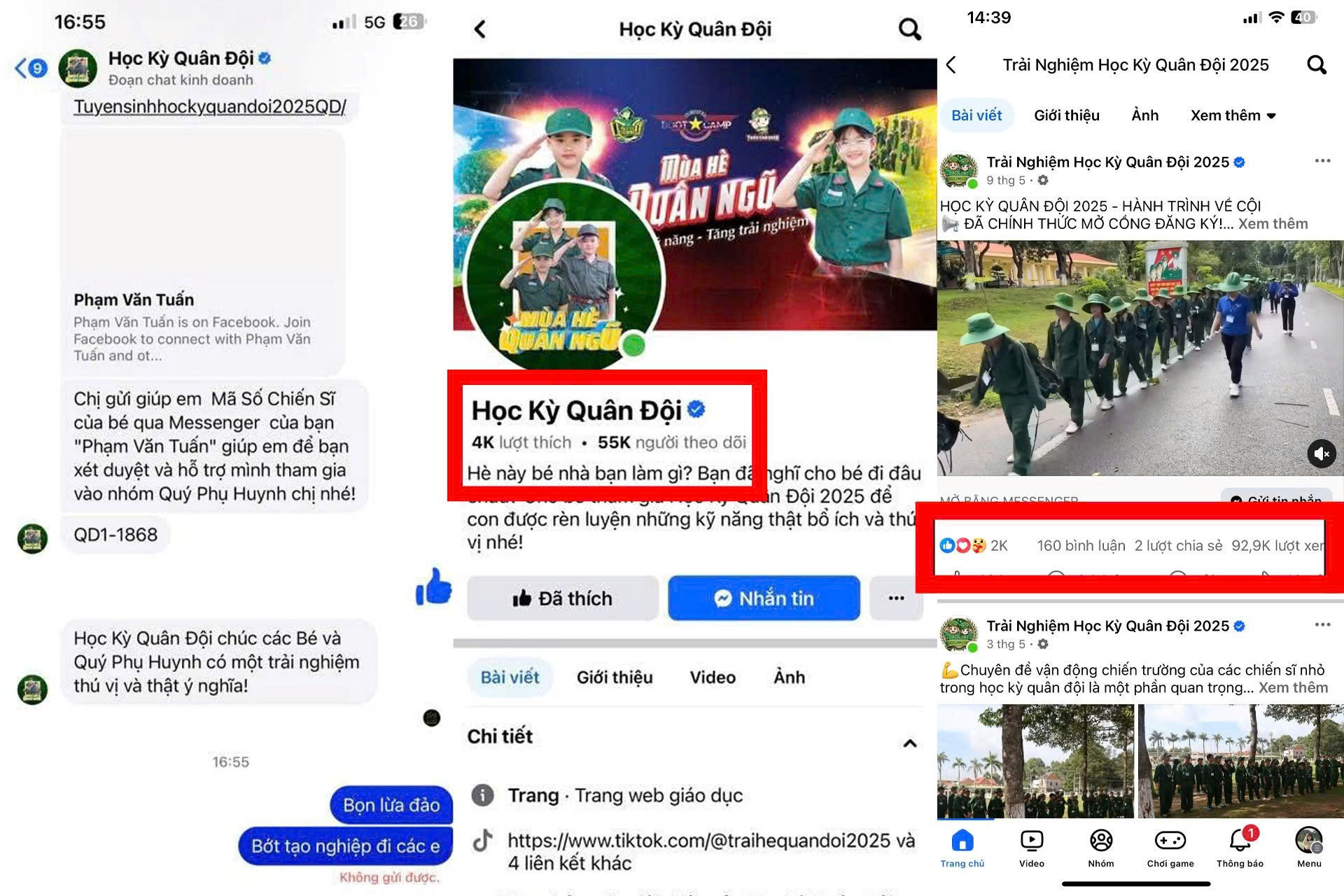
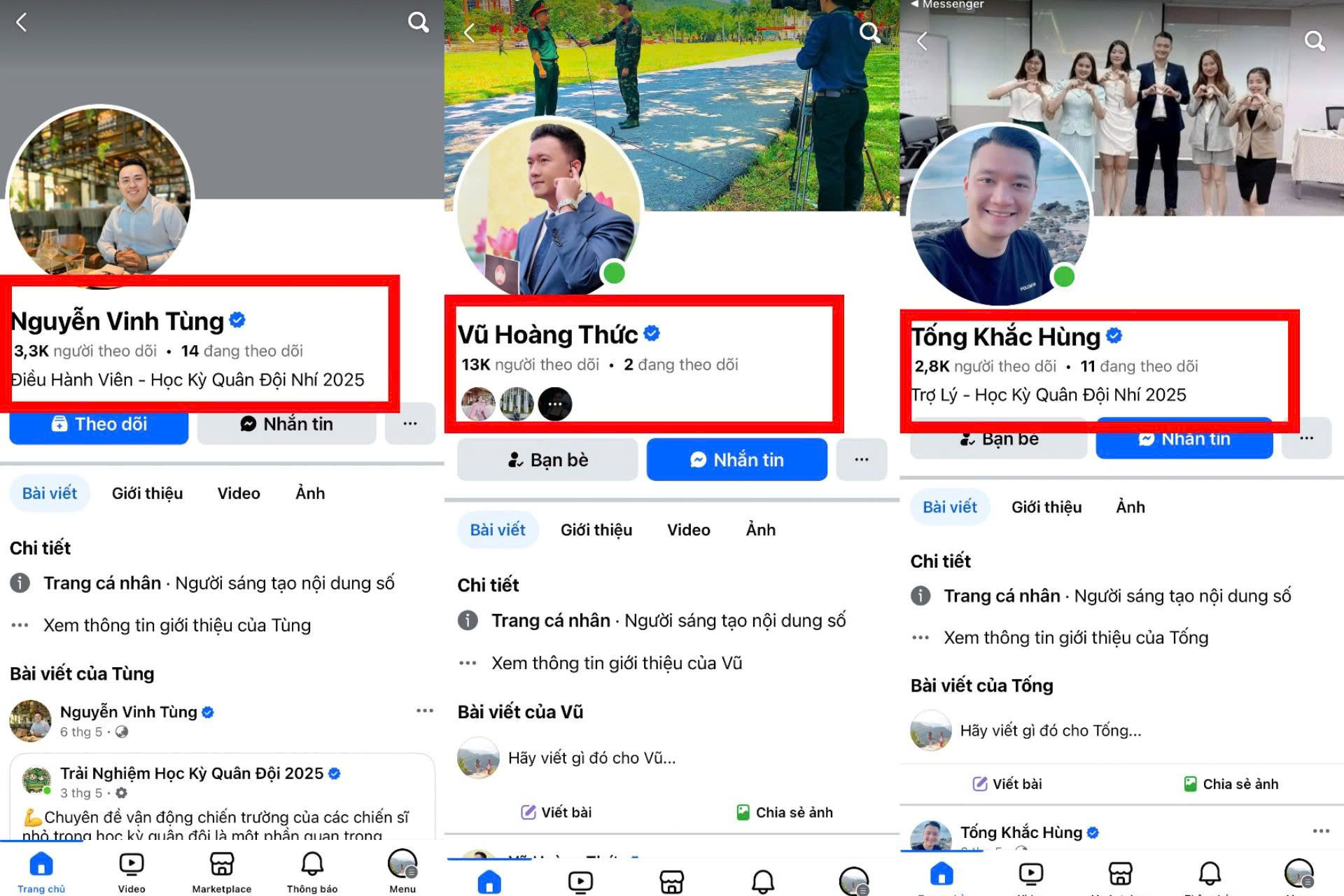
In one recent case, Ms. V. from Hanoi wanted her daughter to experience a meaningful and disciplined summer, so she registered her for a military boot camp promoted widely on social media.
The camp was advertised as being jointly organized by the Ho Chi Minh Communist Youth Union and the Vietnam Youth Support Center, with sponsorship from fashion brand “Vua hàng hiệu,” and promised to be televised by the national broadcaster VTV.
The Facebook page promoting the camp had over 55,000 followers and bore a blue verification badge, which made Ms. V. trust its authenticity. However, after transferring 50 million VND (approx. USD 2,000) as a registration fee, she was blocked and never heard back.
The fraudulent page closely mimicked real military organizations and used past military camp footage and imagery to appear legitimate. Even the "consultants" had verified Facebook profiles, military-style uniforms, and carefully curated language, giving the illusion of a credible operation. Ms. V. even asked friends in the military to verify the camp's location, which turned out to be real - further lowering her guard.
What seemed like a routine request to help “boost brand engagement” for the sponsor turned into a sophisticated scam. The fraudsters asked her to purchase products to help the sponsor, promising to refund the money later.
The payments were made to an account under the name "Vua hàng hiệu," a brand she had previously shopped with, making the scam even more convincing.
After the scam surfaced, the fraudsters quickly changed the page name and all associated visuals to continue operating under a new identity.
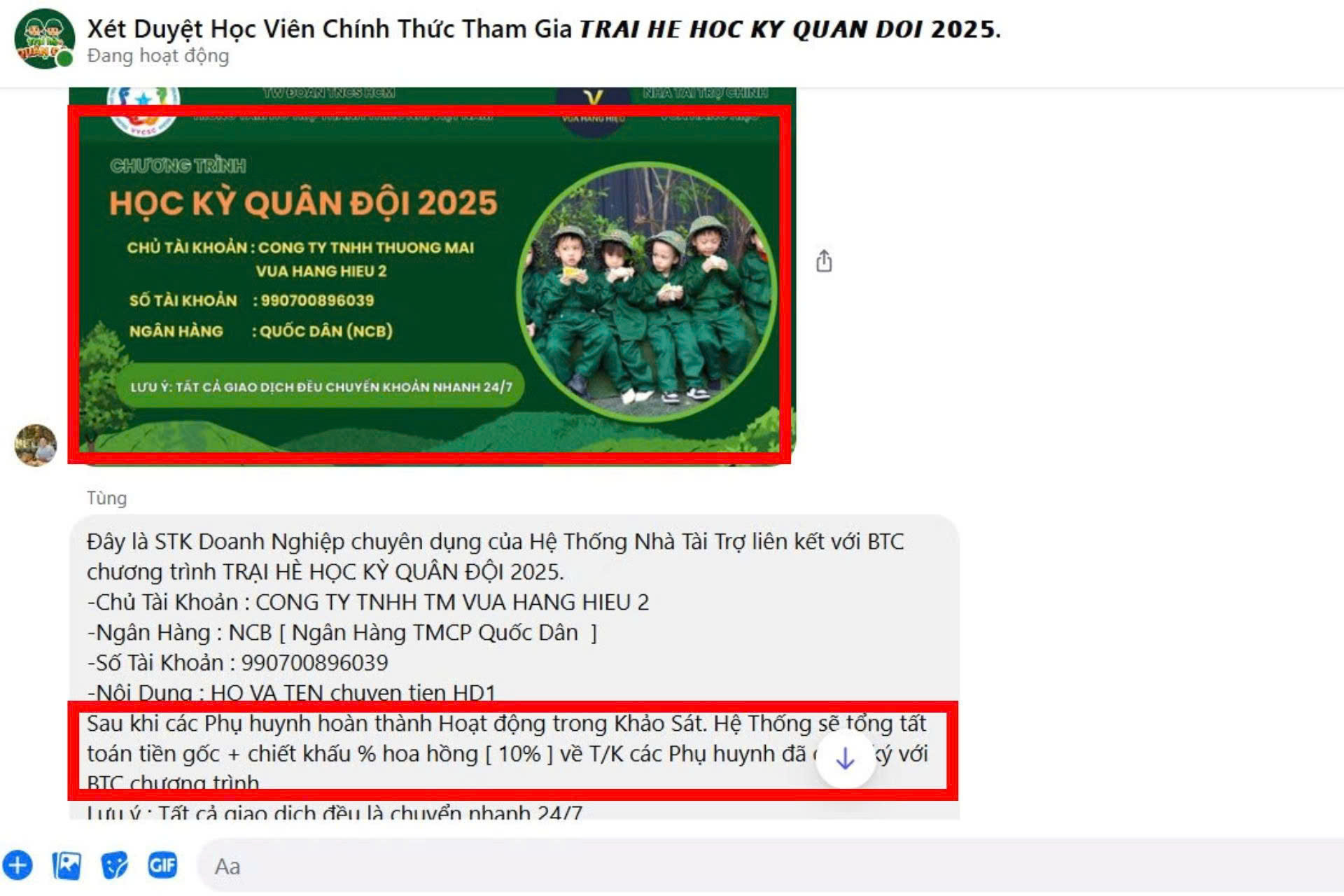
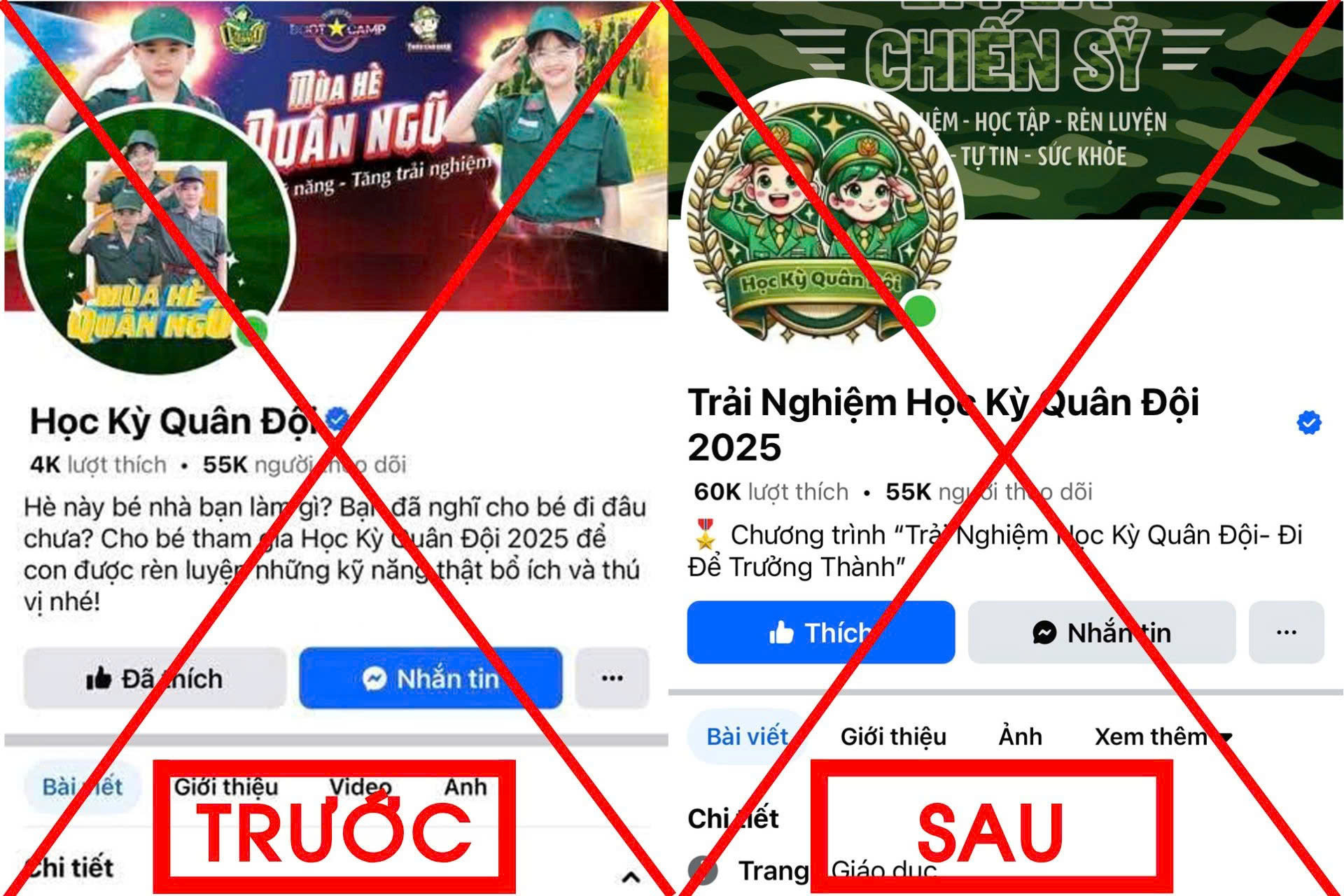
Investigative follow-up confirms the scheme
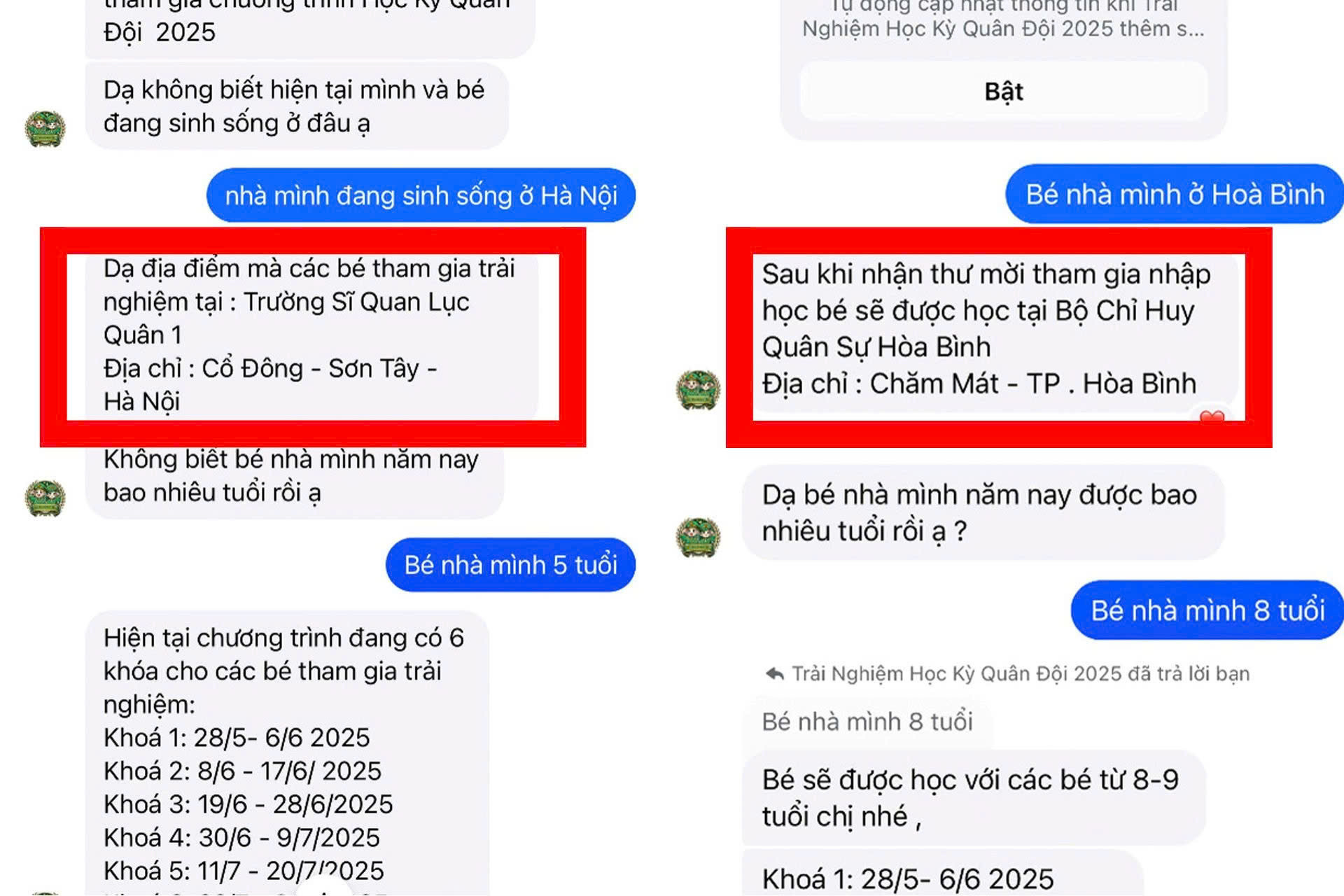
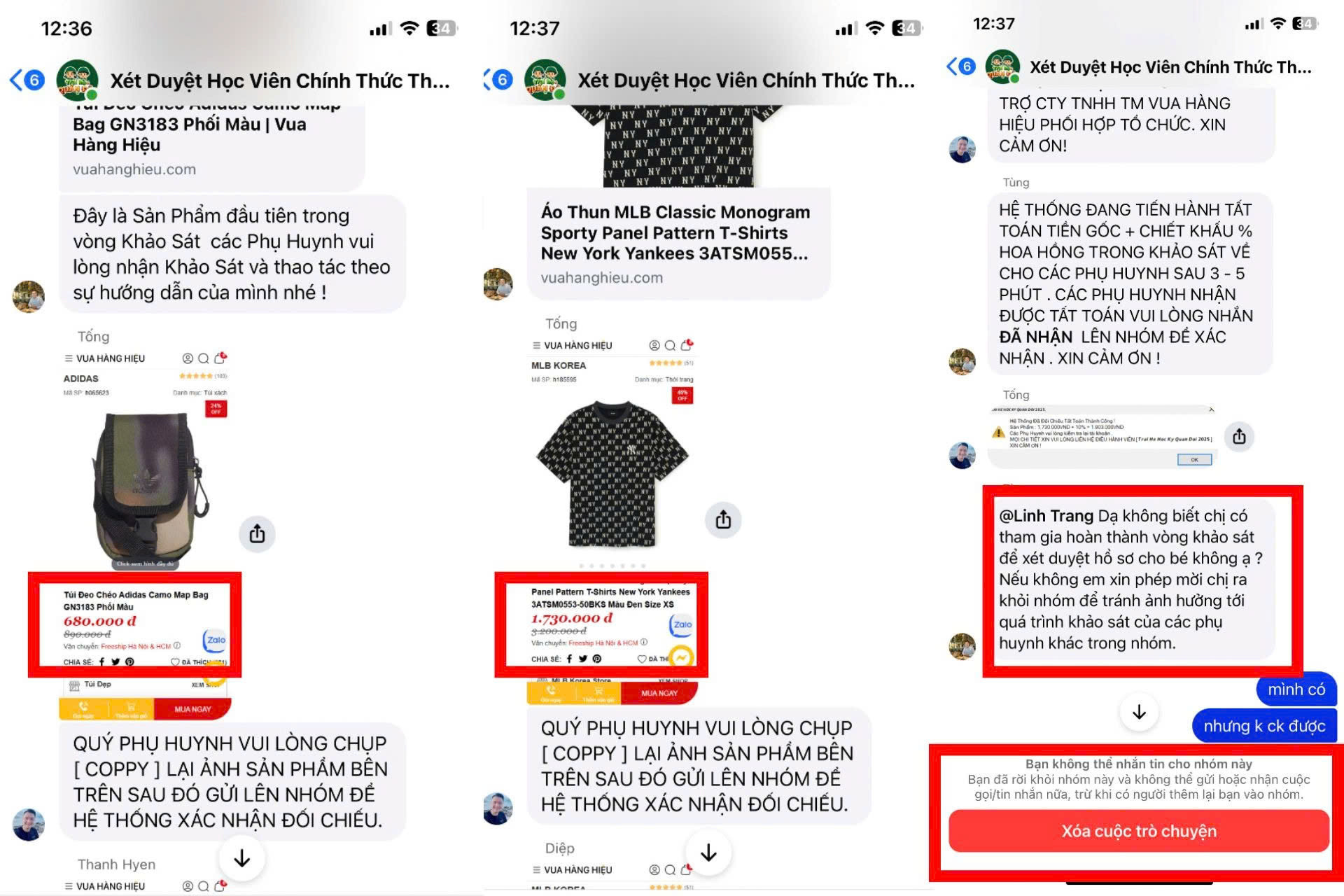
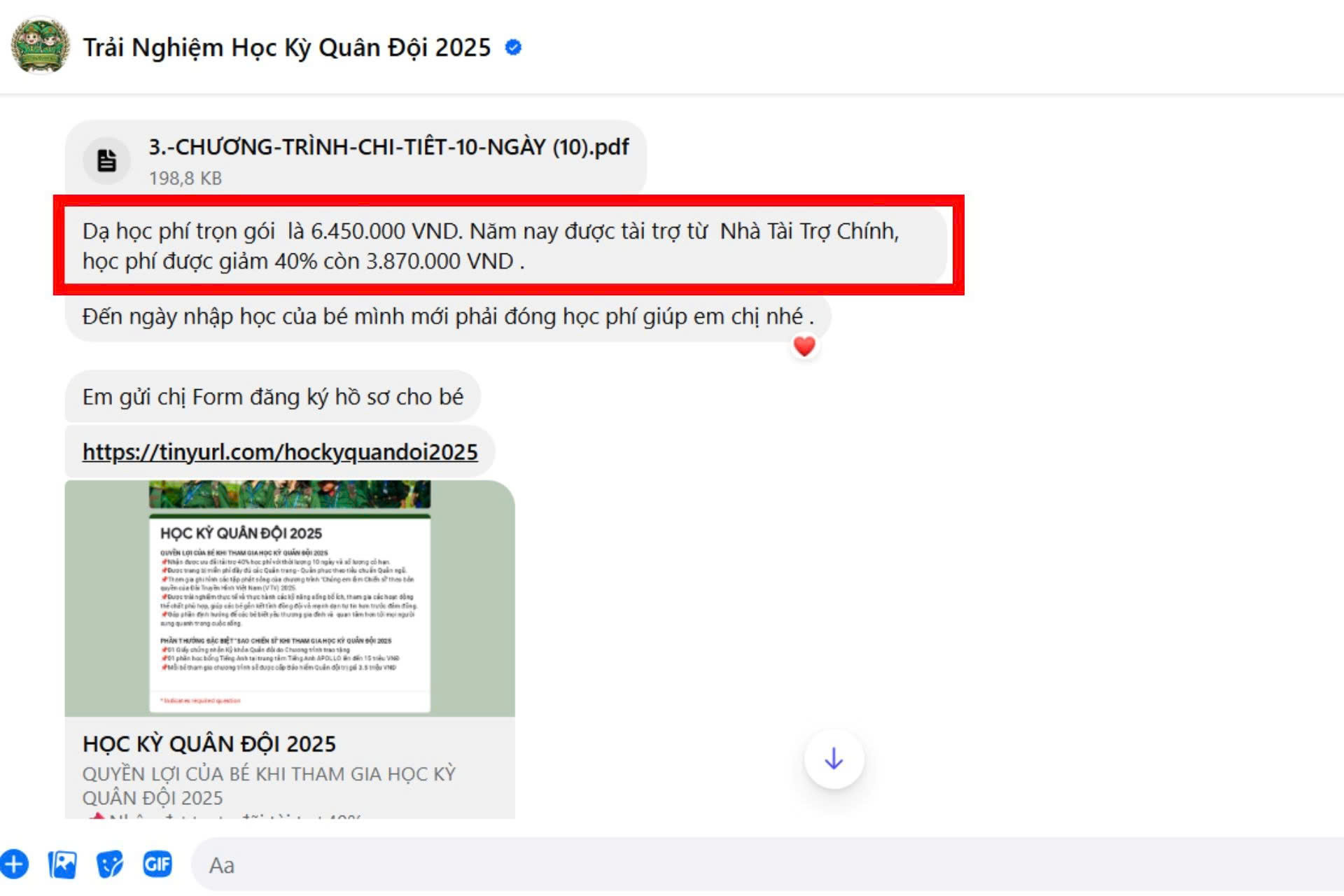
VietNamNet reporters posed as parents and contacted the group - now renamed “Military Boot Camp Experience 2025.” Despite the name change, the scripts and consultation process were identical.
Depending on the user’s location, the scammers tailored responses to suggest the closest military unit. For example, families in Hoa Binh were directed to the local Military Command, while those in Hanoi were pointed to the Officer Training School in Son Tay.
Once a parent agreed to register, they were instructed to fill out a form via a provided link, followed by requests to “support the sponsor” by purchasing items. The transactions escalated quickly - from 680,000 VND to over 1.7 million VND per order. If a parent failed to complete a purchase or a required “survey,” they were removed from the group without explanation.
Expert warnings: sophisticated AI and deepfake techniques

Cybersecurity expert Tran Quang Linh of Chongluadao.vn explained that these scams are targeted. Ads are specifically designed for parents with school-aged children, often including countdowns or discounts like “50% off for the first 30 slots” to create urgency.
Scammers use real images, fake documents, fabricated contracts, and even AI-generated content - like deepfake videos featuring supposed military officers or “student testimonials” created with voice-cloning technology.
Lieutenant Colonel Phi Van Thanh from the Ministry of Public Security’s Department of Cybersecurity emphasized that such impersonations are not just financial fraud - they also exploit parental trust and national symbols.
He warned the public to never trust military-themed programs without legal verification. Real officers never request personal transfers or conduct operations without formal documentation. “Any request involving individual payment accounts, no official invitation letters, and no legal contracts is a red flag,” he said.
Before enrolling in any camp or program, citizens are advised to verify details through schools, local authorities, or the police.
“In this age of deepfakes and AI-generated deception, real people and verified information remain the best defense,” he added. “Staying calm and cross-checking details significantly reduces the risk of being scammed.”
Thanh also stressed that online fraud prevention is a shared responsibility - not only of law enforcement, but also of individuals and the broader community.
Ha Thuong